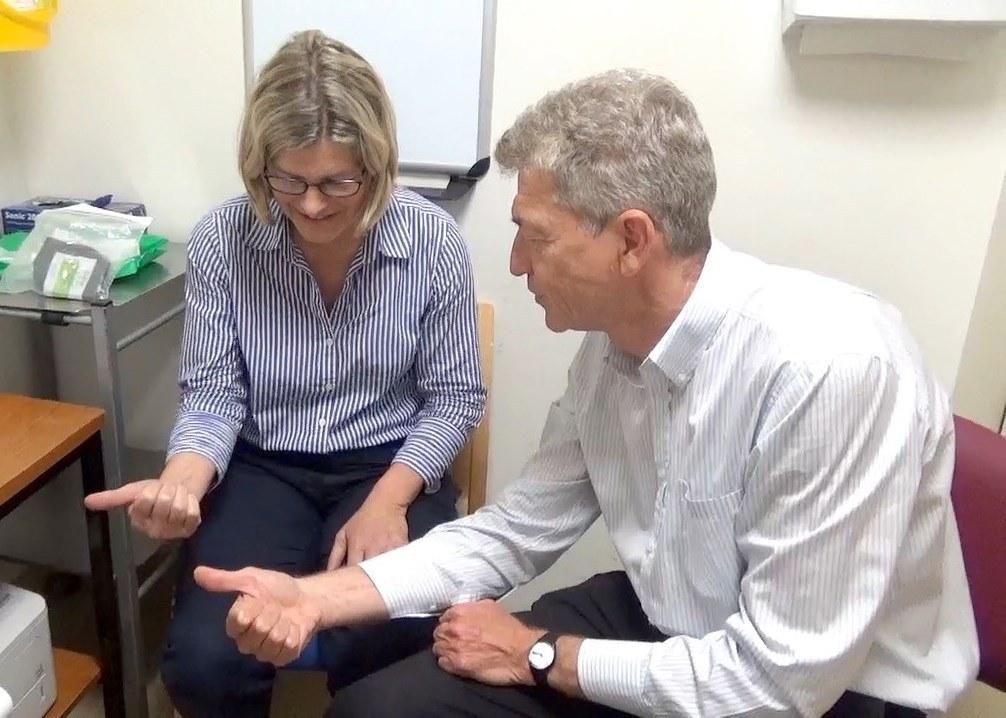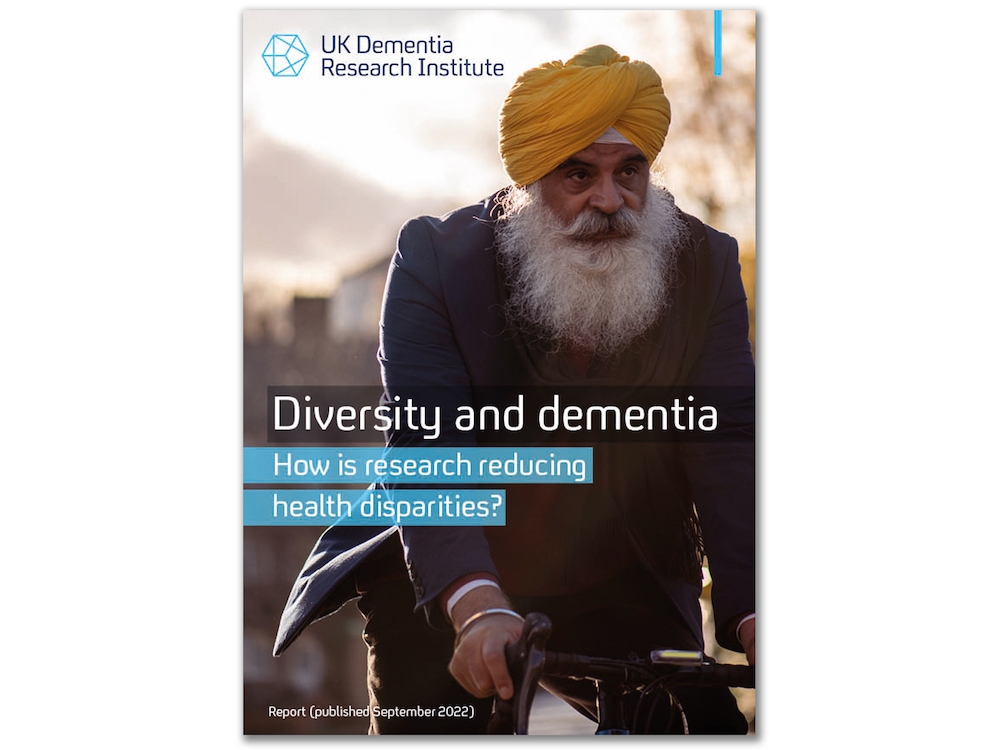Today, the UK DRI published a new report, detailing the impact of scientific research on health inequalities for people affected by dementia. As the report launches at the start of World Alzheimer’s Month, the UK DRI is urging the Government to prioritise funding for scientific innovation, to facilitate larger dementia trials, remove barriers that stop people taking part in research and close the gap on health inequalities.
The report convenes leading dementia scientists from the UK DRI, who are taking action to reduce health inequalities through their own research. This includes:
- Researching “blood biomarkers” to pave the way for a blood test to diagnose Alzheimer’s disease.
- Ensuring both male and female mice are used equally in animal research so that findings can be applied to the whole population. This is policy across the UK DRI.
- Broadening understanding of the implications of ethnicity on risk of Alzheimer’s disease through genetic studies.
- Working to make clinical trials more accessible to all.
- Pioneering accessible, scalable, and affordable new therapies.
- Investigating rarer forms of dementia to plug the knowledge gap and support people living with these diseases.
- Addressing the environmental and lifestyle factors that impact brain health to better understand the link between socio-economic status and dementia risk.
people born today will develop dementia in their lifetime
I feel strongly that we need to instil an ethos in young researchers that reproducibility, diversity and inclusion are paramount. We need to make sure everything neuroscience discovers is relevant for everyone.Prof Tara Spires-JonesGroup Leader at the UK DRI at Edinburgh
The report comes after the Prime Minister recently launched a new national mission for dementia, recommitting to doubling research funding to £160 million per year, in memory of the late Dame Barbara Windsor, and calling for volunteers to join ‘Babs’ Army’ and sign up to participate in clinical trials.
Prof Nick Fox, Group Leader at the UK DRI at UCL, said:
“There are lots of underrepresented groups in studies – racial and cultural groups, as well as those who experience poverty. Why is it important? It's important for social justice. People who are part of clinical trials have better outcomes than people who are not, even if they are given the placebo.”
Health inequalities affect people living with dementia in a multitude of ways: more women die of dementia than men (for reasons more complex than women living longer), and dementia is more prevalent in Black and South Asian ethnic groups than white populations. Lifestyle and socioeconomic factors also influence dementia risk. The UK DRI argues that to tackle these inequalities, change must be instigated not only at the level of NHS and social care, but also in preclinical research.
Prof Nick Fox continued:
“The research community is falling short when it comes to true representation of society, further contributing to already widening health inequalities. Representation is essential both for finding treatments and then ultimately delivering them in a clinical service. So it’s our duty to include this in all our research.”
of people living with dementia are women

Prof Nick Fox running a cognitive clinic for people living with early-onset dementia at the Dementia Research Centre at UCL
The UK DRI says a ‘culture shift’ is already underway to build diversity into scientific research. To continue building on these strengths, we are calling for:
- Innovations to achieve quicker, cheaper, and easier diagnosis of the diseases that cause dementia, including funding research into a blood test for Alzheimer’s disease. An accurate diagnosis is needed to join clinical trials, but the process is currently expensive and very invasive.
- Better, more easily accessible information for people wanting to take part in clinical trials, and trial designs that are inclusive and flexible in order to broaden access to trials, particularly for currently underrepresented groups.
- Diversity to be incorporated from the earliest point in the research pipeline so that findings are a true representation of the population.
- More focus on previously under-researched areas such as early-onset Alzheimer’s disease, and the link between Alzheimer’s disease and Down syndrome.
To tackle health inequalities, we need to understand what puts certain groups at higher risk. A prime example is in the case of people who have Down syndrome and have a very high risk of developing dementia in their lifetime, and yet there has been very little research into this. My team are working to address this gap in knowledge.Dr Frances WisemanGroup Leader at the UK DRI at UCL
Dr Adrian Ivinson, UK DRI Chief Operating Officer, said:
“We know that dementia disproportionately affects certain groups of people, and while there is rightly a focus on tackling health inequalities at the level of care, the role of scientific innovation is too often forgotten.
“It’s fantastic to see so many of our researchers taking steps to tackle health inequalities through their work, and it is exciting to think that their efforts represent a shift in research culture, towards a world in which diversity and inclusivity are considered at every step in the research pathway.
“To achieve our mission of transforming treatment and care for everyone affected by dementia, it’s vital that we take steps to understand why and how different groups are affected differently by the same diseases. To do this, we must bring innovation to the forefront from our fundamental discovery science, through to developing quicker, easier and cheaper methods of diagnosis, as well as finding new solutions to make clinical trials more inclusive and accessible to all.”
Read the full report here. If you would like to learn more about this topic, come along to our free webinar on 21 September, open to all. For more information about the webinar and to register, please visit the UK DRI events page.
To stay up to date on the latest research news and Institute updates, sign up to receive our monthly newsletter, ‘Inside Eye on UK DRI'.
Article published: 1 September 2022
Banner image courtesy of the Centre for Ageing Better
Image of Nick Fox in cognitive clinic courtesy of the Dementia Research Centre at UCL -www.ucl.ac.uk/drc
Black people are approximately twice as likely than white people in the same community to develop Alzheimer’s disease

